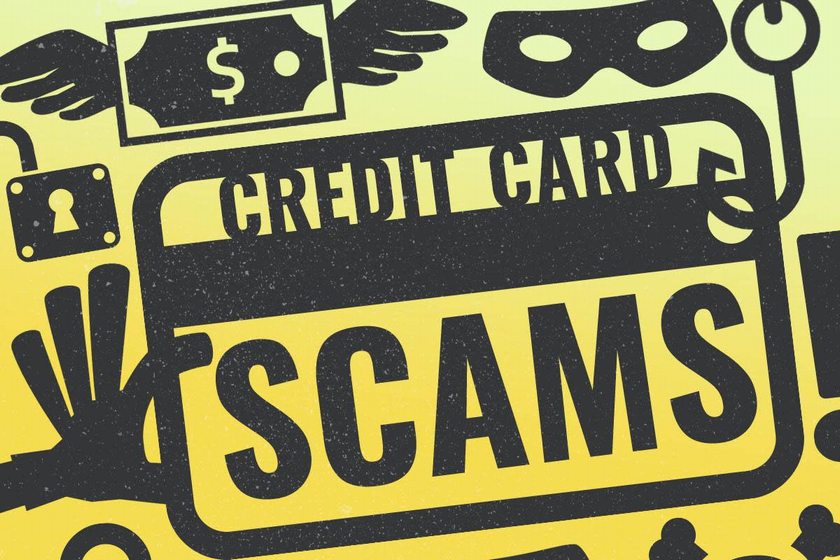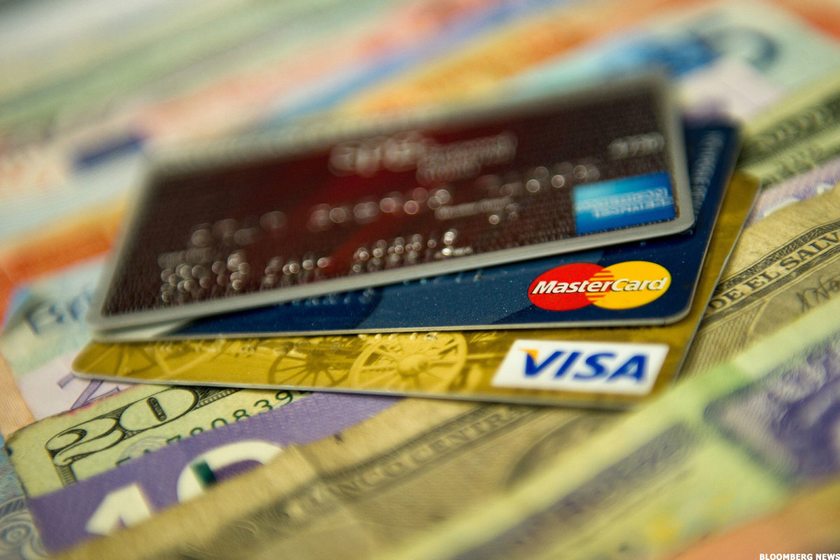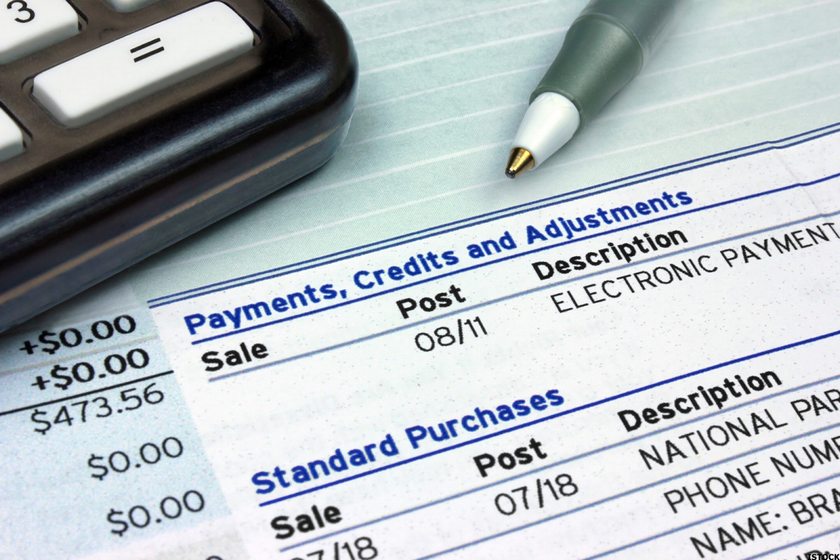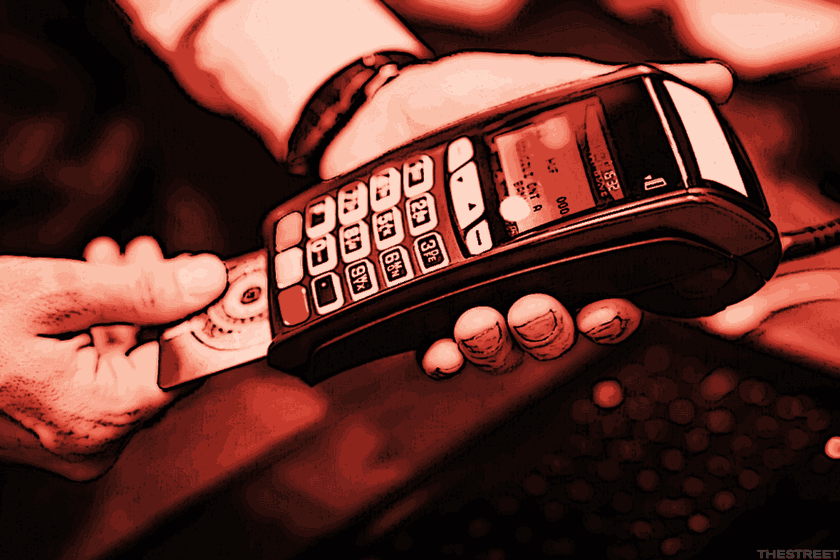At a time when more and more financial consumers are turning their backs on cash in favor of credit and debit cards, the risk of credit card fraud is higher than ever.
In fact, 47% of U.S. adults have reported being victimized by a fraudulent purchase using their credit or debit card.
Additionally, credit card fraud was cited by Experian (EXPGY) as the most common form of personal financial fraud.
Yet Americans don't seem to be doing enough to protect themselves against credit card scams.
For example, while 47% of adult Americans have experienced a fraudulent purchase using their plastic, only 14% of that number opted to freeze their credit–a necessary step when you're the victim of card fraud.
Clearly, consumers have much work to do to better protect themselves from credit card scams. Let's take a look at the problem, and lay out a battle plan to keep card fraudsters at bay.
Types of Credit Card Scams
Increasingly, cash is becoming an antiquated method of payment, and the use of credit and debit cards – whether in physical or digital forms – are on the rise.
A 2017 survey shows that 77% of U.S. adults say they'll use a credit card, either in physical or digital form, to pay for goods and services. Only 12% chose cash.
Yet that's exactly why and where fraudsters see an opportunity for credit and debit card fraud – more consumers are using cards to pay, and financial fraud artists know it. More and more, card criminals are acting on their impulses and engaging in card fraud.
Here are 10 increasingly common ways you could be victimized by credit and debit card fraud:
- A thief digs through your trash, finds discarded receipts, steals your account number, and racks up thousands of dollars in fraudulent charges.
- An unscrupulous waiter copies down your credit card number away from prying eyes, and uses it to finance a Caribbean vacation, and you foot the bill.
- An identity thief lures you to a fraudulent website, which obtains your card under false pretenses, and uses your credit card to commit financial fraud.
- A technologically-savvy fraudster hacks into your smartphone, and steals for your credit card information.
- An email-based phishing campaign can lure inattentive card customers to click on a bogus web link, which actually scoops up the consumer's personal financial data, including card numbers, and makes off with the data.
- The use of malware and spyware could separate you from your credit card – and put your card number squarely in the hands of a credit card data thief. Malware and spyware can not only spy on your internet habits, including purchases made using credit and debit cards, it can also take advantage of older browsers and operating systems to steal personal data.
- Theft by phone or email can happen, often to older cardholders who aren't as savvy to the ways of today's sophisticated credit card fraudsters as younger, more tech-pervasive cardholders. Here, credit card thieves purport to be from a consumer's financial institution asking to confirm your card account data after a bogus data breach, or under the guise of "updating our records."
- A data hacker successfully busts into your financial institution's data system (this has happened to JP Morgan Chase
(JPM) – Get Report and Equifax
(EFX) – Get Report , among others) and makes off with your credit or debit card data. Financial services companies are generally doing a better job protecting user data, but hacks and breaches keep occurring – putting your card data at risk.
- A relatively common, but under-reported form of credit card fraud is the simple act of losing your phone or your physical credit, and is found and used by a stranger.
- You fall victim to what anti-fraud investigators call "account takeover". This happens when a credit or debit card consumers unwittingly provides his or her personal data to a stranger, like a home address or a birthdate, which smart card scammers can use to gain a new credit card.
Credit Card Scams Vs. Identity Theft
While credit card fraud and identity theft do share certain similarities, they have their fair share of differences, too.
Those differences are worth knowing if you want to build a solid defense against credit card scams. Here's what you need to know:
Credit Card Fraud Is Structurally Different
There is a different (and larger) level that separates credit card scams and identity theft. Credit card fraud can be extremely narrow in scope, limited to something as simple as the direct theft of an actual credit or debit card.
Identity theft, on the other hand, is much more widespread and multi-layered. It can include multiple pieces of your data (like a birthdate, a utility bill, and your Social Security card, for example,) which can be pieced together by an experienced card fraudster to steal your credit card data.
Differences in Financial Services Firms "Fixes"
Federal law limits a consumer's liability for credit card fraud to $50. If you report the loss before your credit card is used, the Fair Credit Billing Act says you are not responsible for any charges you didn't authorize.
With identity theft, card losses are harder to quantify, with multiple firms and entities involved (think your cell phone provider, the U.S. government and your card provider, when your phone, your Social Security number, and your credit card are compromised.)
In that scenario, reimbursements tend to get ensnared in red tape, with repayment taking months or even years.
Harsher Outcomes
With credit card fraud, loss is usually contained to a stolen credit card number. With identity fraud, a scammer can more easily assume a person's identity, and do all sorts of financial damage that can take years to untangle.
How To Prevent Credit Card Scams
Credit card scammers are only growing bolder and are operating in larger numbers. With hundreds of millions of credit card transactions taking place each day, the number of potential credit card victims is abundant
To fight back, take these action steps to avoid credit card scams:
1. Check Card Statements on a Regular Basis
Make it a habit of thoroughly vetting every credit card statement, paper-based or digital-based.
If any information or charges seem suspicious, immediately call your card company and recheck the statement. If any charges are indeed unauthorized, immediately report the fraudulent activity and cancel the credit card right away.
2. Act Fast With a Lost or Stolen Card
Despite conventional wisdom, consumers don't have to be actively targeted by a card scammer to be the victim of fraud. A lost pocketbook or cell phone with your card data embedded inside can easily fall into the hands of a card thief who'll likely go on and drain your credit card limit if you don't take steps to prevent that outcome.
Remember that by reporting any suspicious charges, or lost or stolen cards, you'll remove, by law, any responsibility you have for further charges. Loss of a debit card can cost more – if you wait more than 60 calendar days after your statement is sent to you to report it, you could lose all the money in your account.
3. Be Diligent With Your Card
Make sure you know where your credit or debit card is on an ongoing basis.
Never leave your credit or debit card lying around out in the open. Instead, store it away safely in a secure place in your purse or wallet, and only carry it when absolutely necessary.
Additionally, don't store your card number, or other relevant personal data (like a Social Security number) loosely on your smartphone, like in the "notes" section, or in a text or email. Fraud artists can easily and quickly dig the needed data out and use it to commit credit card fraud.
4. Check for Security
When you're online shopping, and planning to use your credit card, ensure that any page that asks you to enter credit card information has "https" in the address bar (the "s" means secure) and a padlock icon at the bottom of the screen.
5. Avoid Email Scams
Online credit card scammers like to use phishing schemes to get your card data. Don't fall for these scams. Delete any suspicious emails that you suspect are purporting to be from your financial institution or a favored retailer. Also, don't click on any email link unless you know exactly who's sending it.
6. Don't Offer Personal Information to Strangers
Never reply to a stranger online, either via text or email, or on social media, and offer any personal information. Remember, legitimate companies will not ask you for your credit card number without a valid reason, and almost always because you initially reached out to them first.
Above all else, apply a healthy dose of common sense to your credit card protection quest.
For example, take the sensible step of contacting your credit card issuer and asking why suspicious charges appear on your credit card bill, or on your debit card statement.
Or, never share your card information with strangers, or only use a single password on your card account – studies show that cards are harder to steal online with an extra layer of password protection.
Also, contact your credit card provider and ask what they're doing to protect your card and your data – working as a team significantly boosts your chances of avoiding credit card scams.
Let's face facts – if you don't take credit card fraud seriously, scammers will, and at your expense. Consequently, you'll need to take a big role in stopping credit card scammers in their tracks.




















